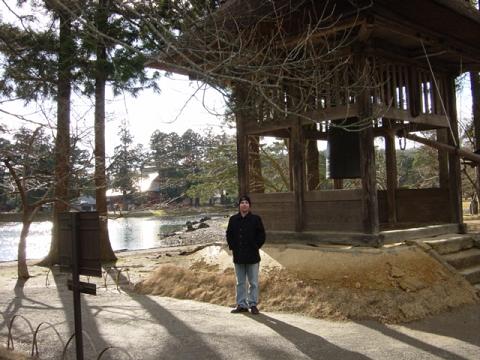I recently saw another blog that had a lot of very short and somewhat interesting posts and links so I figured I'll try to emulate that style for awhile while my time is rather short.
So in my series of short blog posts (hey, I might even do this from my cellphone), we have...
#1 - that old adage that you're "fluent" when someone thinks you're a native on the phone.
I had to call my credit card company to deal with some problems, and I always dread telephone talking, because usually Japanese people talk in an insanely fast and very polite (an entirely different language from Japanese) way, and I can't make out physical cues, verbal cues, body language, I can't ask for it in writing, etc.
Anyway, after speaking to the woman about a bunch of financial stuff, we were having a rather in-depth Japanese discussion, she asked for my credit card number, and as soon as she pulled up the record and saw I was a foreigner, her talking completely changed. It was at that point that I realized I had tricked her into thinking I was Japanese from the start.
How did I realize? After pulling up the record, she tried to be very nice, she changed, she started to not use the "entirely different language from Japanese" polite forms (called "keigo"), in fact at times she used the keigo and then tried to express it in another more simple term.
"Goseinengappi" (your date of birth) became "Otanjoubi" (your birthday).
"Myouji to Yobina" (your family name and given name) became "furu ne-mu" (the Japanese pronunciation for "full name")
I did feel a sense of small accomplishment. See, contrary to many people, my main focus of study in Japanese so far has been on reading and writing. So while the SOME of the "conversation folk" (most speak Japanese in their native language pronunciation which is incredibly difficult for both me and Japanese people to understand), some of them might have pulled off this stunt very early in training, but it took a while for me.
However, I don't feel fluent to any extent whatsoever, at least according to the idea I laid out in the 5-part series below. It's a lot deeper than what it appears to be.
It involves public and private persona, the way that we are with ourselves alone or in public, and then the way that we talk to a friend or lover versus the way that we talk to our boss. Just because you can be understood in Japanese doesn't mean that your way of talking is acceptable, it's just entirely tolerated because you're "not Japanese" so "you don't know any better."
In other words, I think self-congratulations are very stupid when they're based on some arbitrary level of gaining some vaguely-defined term that is supposed to represent your ability.
Blog Archive
-
▼
2007
(35)
-
▼
January
(11)
- Absurd cultural simplification
- Crazy Taxi
- That cursed word "fluent"
- Part 5 - Japan Culture - Missing Out 2
- (Part 4) Japan Culture - Missing Out 1
- Japan Culture - No Language, No Meaning, Know Lang...
- Japan Culture - Are you Fluent? (Part 2)
- Japan Culture - Language and Culture (Part 1)
- "If You Listen"
- Syrupy sweet Japanese pop music
- Pride Fighting Championships New Year's Eve Pics+Vids
-
▼
January
(11)
Subscribe to:
Post Comments (Atom)

3 comments:
I have heard of this many times before also. A foreigner speaks Japanese on the phone but when the Japanese person finds out they are not Japanese, all of a sudden they can't understand them anymore.
tornados28,
What a succinct way to put it! It's hilarious.
Ruina-San, do you think there is hope for a 20 year-old Native, British reaching fluency In Japanese?
If so, what do you recommend in terms of self-study? I am desperate to make sure I will not become a typical no-language Gajin when I go there in my second year of University. Like, how many hours do you study, what techniques work for you, what materials should I buy; ones they may help in different aspects of the language?
Post a Comment